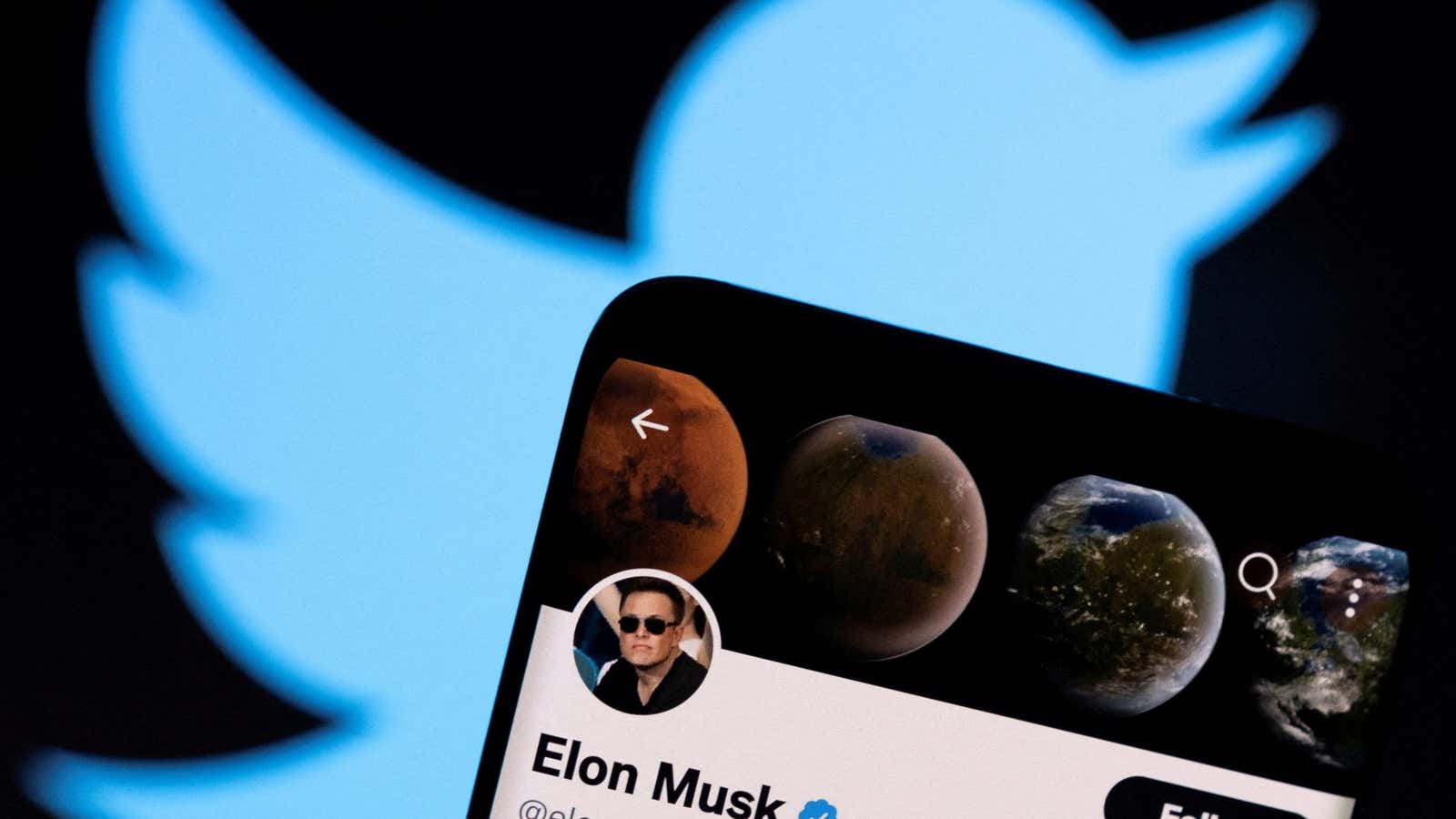On April 15, Twitter’s board of directors adopted a poison pill defense to protect the company from Elon Musk. The Tesla and SpaceX CEO wants to buy the company for $54.20 a share, which could be seen as trolling the company, or a legitimate campaign to promote Musk’s idea of free speech on the platform.
There are ways to thwart the poison pill, but it won’t be easy or cheap. Twitter’s board has thrown a wrench in Musk’s hostile takeover plan and, at the very minimum, it has bought itself time to consider its next move.
So, what is a poison pill anyway?
Power to the Twitter shareholders
The poison pill is a common nickname for a shareholder rights plan, which allows shareholders to buy additional shares of a company’s stock at a discount, diluting the value of each individual share. A company concerned about an unwanted corporate takeover will put the plan in place and, after a triggering event—in Twitter’s case, if one person buys 15% of the stock without the board’s approval—all other shareholders will be afforded the opportunity to buy up more shares. Musk currently owns 9.2% of Twitter.
On April 18, Twitter filed an 8-K form with the US Securities and Exchange Commission detailing the plan: Shareholders will be able to pay $210 for one-thousandth of a share of Twitter preferred stock stock for each share of Twitter common stock they hold. Each share of preferred stock would confer voting rights, and would immediately be worth double the purchase price, or $420. (Yes, another marijuana joke between Twitter and Musk.)
In the filing, Twitter said the plan would “protect stockholders from coercive or otherwise unfair takeover tactics.” The poison pill, if triggered, gives shareholders much more voting power while severely diluting Musk’s shares.
Musk outlined his financing plan in an April 21 SEC filing, but that simply gives Musk more leverage in negotiating with the board or other investors—it won’t help him with the poison pill.
Will the poison pill stop Elon Musk?
The poison pill plan is a serious deterrent against a hostile takeover, says Adam Pritchard, a corporate and securities law professor at the University of Michigan Law School. Not only would the $2.64 billion Musk already spent be squandered by the move, Musk would have to spend many billions more than the $43 billion he already proposed spending.
“It’s economic suicide,” he said in an interview. “No one has ever triggered a poison pill. They’ve been around since the 1980s. No one has ever triggered one.”
While Twitter has not yet formally rejected Musk’s bid, the company’s board is expected to do so in the coming days.
The board now has a few options, Pritchard says: The board can do nothing, it can seek a more favorable buyer, or it can negotiate for a higher price.
Musk can overcome the poison pill through a proxy contest, he adds. Musk would need to issue a proxy solicitation and receive 51% of the shareholder votes (mostly by winning over institutional investors). From there, Musk could replace the current board, which includes co-founder Jack Dorsey, with people favorable to his takeover plan.
“A poison pill is not invulnerable,” Pritchard says, “but it requires you to go through this lengthier process of soliciting proxies in order to displace it.”
This article was updated to include details about Musk’s financing plan.
